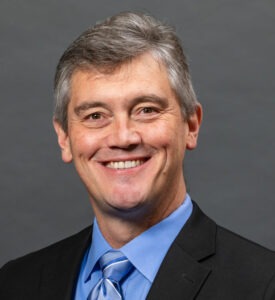
URAC President & CEO, Shawn Griffin, MD
Throughout my career as a physician, I’ve seen too many disparities in health outcomes. Health equity aims to eliminate disparities and ensure everyone has a fair opportunity to attain their highest level of health, regardless of socioeconomic status, race, ethnicity, geography and other such factors.
Over the years, as I’ve traveled around the country and the world, I’ve seen various approaches to equitable access and individualized care. For me, health equity is about prioritizing people over political debates; individualizing care; and overcoming challenges surrounding language, geography, economics and culture. This approach enables us to care for more people effectively — one of my core passions.
At URAC, we are committed to advancing health equity across the health care landscape. It’s why we developed our Health Equity Accreditation in collaboration with the National Minority Quality Forum (NMQF) and sought insight from our Health Equity Council, consisting of 25 organizations including the U.S. Office of Personnel Management and the American Public Health Association. Over the last few months, we’ve been working with our partners to gather insights around health equity accreditation, the role of telehealth and more:
Key Takeaways from URAC’s Recent Health Equity Webinar
In case you missed it, we recently hosted a webinar on the importance of health equity in health care. In addition to members of URAC’s team, we were honored to welcome members of URAC’s Health Equity Committee: Michael Garrett, MS, CCM, Health Equity and Clinical Management Consultant, and Lawrence Haynes, MA, Program Manager for Racial Equity American Public Health Association.
Lawrence Haynes, MA, speaks to APHA’s support of URAC’s Health Equity Accreditation
Michael and Lawrence explored:
- Strategies for identifying and addressing inequities within health care organizations
- Essential concepts such as cultural competency and social determinants of health
- The need for inclusive language
They also spoke to ongoing work to tackle systemic disparities and improve outcomes for marginalized communities, with accreditation serving as a catalyst for change. The webinar highlighted the tremendous impact of social determinants of health like education and the environment on health outcomes, reinforcing their urgency.
The webinar dove into how URAC’s Health Equity Accreditation focuses on organizational behavior and planning, rather than rigid data standards, because data can be siloed and often doesn’t tell the full story. It also walked through the process of tailoring health care to an individual while understanding and addressing the unique gaps and disparities impacting specific communities. With these core principles in mind, health care organizations can measure their success in working towards a more equitable future.
Insights from URAC and Partners on “Techquity”
Telehealth can be an essential driver of health equity by bridging gaps, but the digital divide, or gaps in digital access that are especially prominent among historically marginalized communities, can hinder its success and further exacerbate inequities.
URAC recently released a white paper exploring the critical connection between telehealth and systemic health equity, or “techquity”, in partnership with organizations doing wonderful work in this space. Download the white paper here!
In the paper, experts from URAC, the Center for Telehealth and eHealth Law, Children’s National Hospital and Texas Tech University Health Sciences Center describe initiatives focusing on factors that contribute to disparities. They highlight issues like limited data usage in cell phone plans; availability of translators; consent to treatment; and the importance of treating all patients with dignity and professionalism, regardless of location. They also highlight the work that remains to be done as we all commit to improving collective wellbeing for everyone.
If you’re interested in partnering or seeking more information about how our accreditation can help your organization achieve health equity, please don’t hesitate to reach out.



